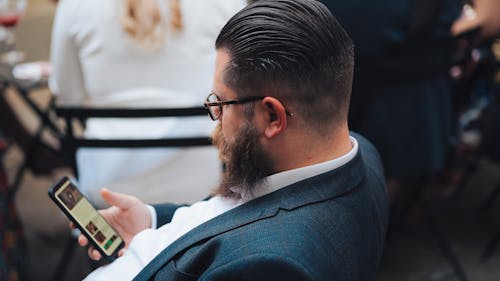PANCHARIYA: How social media has ruined our daily lives
Column: Moment of Truth

Living life online has become the norm for many. As a society, we have gotten to a point where it has become a hindrance to exist without a cell phone or some form of technology.
From shaping culture to displaying information, social media is a go-to for most news. It has also come to a point where the general public does not know if the information being distributed on platforms such as TikTok and Instagram is accurate or not.
For example, Snapchat has a section underneath your friends' stories that highlights celebrity drama and recent events. How are we able to justify its credibility? This results in people fact-checking this information with actual news sources such as CNN, The Washington Post, The New York Times and more.
In addition to Snapchat's news stories, the company has recently updated its software to have a "My AI" chatbot. This artificial intelligence is meant to answer questions or just share a simple conversation with a user, but it crosses a fine line between comfort and concern.
Users have been sharing their conversations with the chatbot online, and they range from having essays written for them to "tricking" it. This idea of chatting with an algorithm takes away from the authenticity that used to be in social media.
The whole idea of an artificially-intelligent friend contributes to the problem of social media making individuals less social a little ironic, no? It is unfathomable that there was a time when human beings on a train or bus would not be constantly looking at their phone but instead making conversations with those next to them or even reading a book.
Due to the ease of escaping into the digital world, avoiding social interaction has become increasingly convenient. This could be a temporary solution for individuals with anxiety, but in reality, it is not helping anyone.
To add to this anxiety-inducing aspect of social media, there is also the constant fear of being recorded. Not only is it hard enough for teenagers or even adults to fit in, but they are also subject to potentially having one questionable moment uploaded to social media and having it circulate on all platforms. There exists a vicious cycle of taunting an individual for life because their digital footprint is bound to haunt them in the present.
The dissociation between reality and the digital world is becoming much more common than we should tolerate. Recently, TikTok user @jackielabonita posted a video of an outdoor baseball game capturing two others making fun of her while she took pictures of herself. Users on this platform proceeded to call them mean and reach out to their places of work.
Their reaction is justified as these two onlookers were ridiculing another person, but the lengths gone to in order to punish them are unlike any other. This further feeds the fear of being recorded at all times while being ridiculed for minute things. Regarding the mean onlookers, public negativity was understood, but there are numerous cases where people are being made fun of for simply being themselves.
It becomes harder to create your own identity or even to exist freely when cameras could be on you any second. Additionally, social media platforms have taken "cancel culture" too seriously. Holding people accountable for their actions is vital, but cancel culture has created a toxic environment in which anything and everything is up for grabs.
Through a series of events such as those listed above, it is obvious to see the adverse effects of social media, even though the initial intent behind creating a digital culture was to develop connections and further societal development.
Another increasingly significant issue is the effects on mental health. Social media can also be used as a forum for bullying and exclusion, normalizing risk-taking behavior and promoting unrealistic body images and popularity standards.
What teens and young adults view makes them vulnerable in developing who they are as a member of society. It seems that this mission to improve society through the digital world is long gone because social media has become more about sharing trivial aspects of life.
Living day-to-day now requires checking your devices from the moment you wake up to the moment you sleep. There are various benefits from having apps that document your life, personal or professional, but it has become evident that the downsides of social media are not worth the hassle.
Priya Panchariya is a School of Arts and Sciences first-year majoring in philosophy and minoring in criminology. Her column, "Moment of Truth," runs on alternate Tuesdays.
*Columns, cartoons and letters do not necessarily reflect the views of the Targum Publishing Company or its staff.
YOUR VOICE | The Daily Targum welcomes submissions from all readers. Due to space limitations in our print newspaper, letters to the editor must not exceed 500 words. Guest columns and commentaries must be between 700 and 850 words. All authors must include their name, phone number, class year and college affiliation or department to be considered for publication. Please submit via email to oped@dailytargum.com by 4 p.m. to be considered for the following day's publication. Columns, cartoons and letters do not necessarily reflect the views of the Targum Publishing Company or its staff.



